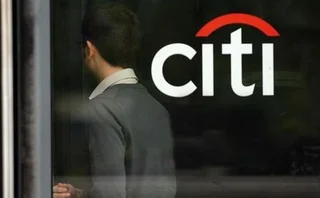
Johnson seeks rehearing, argues lower fraud bar threatens markets
Former trader’s attorney says that in affirming his conviction, the panel has set a low bar for fraud

Mark Johnson, the former senior HSBC banker convicted of conspiracy and wire fraud, is asking the full appeals court in New York to rehear his case, arguing a panel of its judges has lowered the bar for fraud, which could have an impact on the proper functioning of financial markets.
Johnson’s attorneys filed a petition on October 25, asking that the panel at least rehear and decide the misappropriation theory in the case, or for a rehearing en banc – a very rare kind of review reserved for complex court cases or proceedings of great importance – in which the full Second Circuit Court of Appeals would hear the main issues in the case.
The attorneys argue the panel that heard Johnson’s appeal used an “overbroad” definition of fraud and declined to address his legal challenge to the government’s theory of misappropriation on the mistaken premise that it was merely factual.
“This prosecution exemplifies why federal prosecutors should not inject themselves into private commercial relationships in complex markets they do not understand,” writes Alexandra Shapiro, a partner at law firm Shapiro Arato Bach. “Johnson has been sentenced to prison based on an argument that would not be civilly actionable. In affirming his conviction, the panel set the bar for fraud so low that its decision threatens to undermine the proper functioning of global commercial and financial markets.”
Johnson, a former global head for FX cash trading at HSBC, was convicted at the Eastern District Court of New York in October 2017, stemming from a $3.5 billion fixing order that the bank traded in December 2011 on behalf of its client, Cairn Energy.
US prosecutors argued Johnson misappropriated the oil and gas company’s information when he tipped off traders at HSBC about the timing of the transaction, and that he deprived Cairn of the right to control its assets by trading ahead of the order in a manner that pushed up the price, and gained the bank $7.2 million in profits.
Cairn was not stuck with the FX transaction once it was completed
Appellate court
Johnson denied the claims, pointing to contracts, and an International Swaps and Derivatives Association (Isda) agreement establishing an arm’s length relationship and disclaiming a fiduciary one.
But the appeals panel concluded in September that there was sufficient evidence to convict the former trader on the right‐to‐control theory because at least two misrepresentations were made to Cairn – promising not to “ramp” the fix and misrepresenting why the market moved in the hour before the transaction. This, the judges believe, was capable of influencing the company’s decision-making.
“Cairn was not stuck with the FX transaction once it was completed. It could have sought to unwind the transaction before settlement, withhold payment or seek immediate legal action on the ground that it had been defrauded,” the appellate court’s September opinion stated.
Expansive interpretation
But Shapiro counters in her petition that the panel interpreted fraud expansively to uphold Johnson’s conviction for conduct that would not withstand a motion to dismiss a civil suit.
Additionally, she asserts that the judges’ view that misrepresentations made after a trade’s completion can be material if it precedes the exchange-of-funds conflicts-with-circuit precedent, which established that once parties commit to a transaction, subsequent misstatements are immaterial.
If the judgement is left in place, says Shapiro, it would allow parties to unilaterally unwind deals and hold counterparties hostage by refusing to settle trades. She says both the Federal Reserve and the Securities and Exchange Commission have warned the threat of non-payment creates systemic risks undermining financial market stability.
Furthermore, she says Johnson had asked Cairn for a minimum of two hours’ notice ahead of the multi-billion-dollar transaction so that HSBC could execute the order quietly and avoid any pressure on the fix rate, but he was only given 30 minutes’ notice.
“That ‘ideal world’ never materialised,” she writes, “because Cairn didn’t give two hours’ advance notice.”
Granting petitions for en banc reviews is especially rare in the Second Circuit, according to law firm Drohan Lee, which says the court has allowed only two in the past eight years.
“Potential grounds for granting them are usually found when a federal court in another circuit has issued an authoritative conflicting decision on an issue of exceptional importance,” the law firm says. “The petition for rehearing argues that such a conflict is found in the recent Ninth Circuit Bogucki case, which dismissed criminal charges against a bank FX dealer under similar circumstances.”
Only users who have a paid subscription or are part of a corporate subscription are able to print or copy content.
To access these options, along with all other subscription benefits, please contact customer services - www.fx-markets.com/static/contact-us, or view our subscription options here: https://subscriptions.fx-markets.com/subscribe
You are currently unable to print this content. Please contact customer services - www.fx-markets.com/static/contact-us to find out more.
You are currently unable to copy this content. Please contact info@fx-markets.com to find out more.
Copyright Infopro Digital Limited. All rights reserved.
You may share this content using our article tools. Printing this content is for the sole use of the Authorised User (named subscriber), as outlined in our terms and conditions - https://www.infopro-insight.com/terms-conditions/insight-subscriptions/
If you would like to purchase additional rights please email info@fx-markets.com
Copyright Infopro Digital Limited. All rights reserved.
You may share this content using our article tools. Copying this content is for the sole use of the Authorised User (named subscriber), as outlined in our terms and conditions - https://www.infopro-insight.com/terms-conditions/insight-subscriptions/
If you would like to purchase additional rights please email info@fx-markets.com
More on People
IMC appoints head of FX trading
Ex-UBS exotics head Ramon Puyane to join Dutch market-maker
Citi’s head of FX electronic platforms departs
Ala’a Saeed, who oversaw its single-dealer platform, leaves US bank
Deutsche adds three to FX sales team
German bank recruits institutional sales head in New York, along with hires in London and Paris
Nomura hires Leng for dual global FX trading roles
Hire comes as Nomura looks to significantly bolster its FX and macro trading division globally
Capitalab co-founder quits firm
David Bachelier leaves BGC-owned compression venture after seven years
Citi names Stuart Staley FX co-head
US bank’s Asia-Pacific markets head moves to London to work alongside Itay Tuchman
Wells Fargo adds Asia FX trading and sales heads
Weeli Goh joins from TD to head Asia FX trading; Yash Biswas moves from NatWest to run sales
Pollock becomes COO of Diginex in Singapore
Westpac veteran will build out the crypto firm’s office in the city-state








